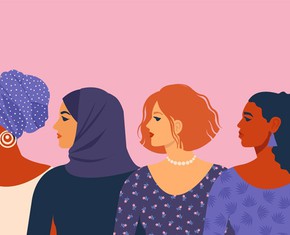The views expressed in our content reflect individual perspectives and do not represent the authoritative views of the Baha'i Faith.
Several years ago, while traveling in Panama, I found myself in a small motor boat en route to a tiny island near the seaside town of Portobelo.
Just after sunset the starlit sky flickered its splendor across the shimmering surface of the water, as the bow of the wooden vessel cut a rippled path through the darkness. I had never sailed at night before, and without the reassurance of sight to guide me I felt myself adrift in the gloaming, unmoored and unsteady. The twenty minute ride across the bay felt like a treacherous voyage into the unknown.
Every sudden lurch of the boat or sound of a fish breaking the water’s surface reminded me of the precarious nature of my circumstance. I did not have any navigational skills to speak of. I could not chart my course by the stars, or determine how far I should tack left or right to account for the shifting winds. My survival depended on the capable, tested hands of my experienced boatman. With his eyes peering steadily into the shadowy blackness, Enrique expertly guided that 16-foot dory from port to port, without incident.
As I stepped awkwardly from the swaying vessel, I looked over my shoulder to consider the distance we traveled, thankful for the safe journey. Which reminded me of one of my favorite gospel songs: How I Got Over, made famous by the remarkable singer Mahalia Jackson. Composed in 1951 by the great Clara Ward, the opening lyrics read:
How I got over
How I got over
You know my soul looks back and wonders
How I got over.
Written as a musical celebration of God’s unfailing grace, the song sounds a rousing anthem of praise and gratitude for safe passage through difficult times and over turbulent waters. It serves as a reminder – that when we face life’s tempestuous winds and stormy seas, faith in a capable and tested Guide is an indispensable resource.
But what happens when we choose not to access that resource – when because of pride, hubris, excessive individualism or an inordinate regard for our own opinion, we insist on piloting our ship into the darkness only to find ourselves off course and adrift at sea?
Today, besieged by a host of social ills, humanity seems to have lost our way – a massive, multi-faceted problem which, according to the Baha’i teachings, is essentially spiritual in nature. Materialism; egotism; godlessness; slavish devotion to public opinion; immorality; sexism; environmental terrorism and prejudice of all kinds pollute the body politic and threaten to damage or destroy us all. Institutional safeguards, previously held as sacrosanct, appear incapable of taming the gale force winds or calming the gathering storms around us. Truth, the anchoring force meant to ground us, has been twisted into a fluid construct, fickle and unpredictable.
With no compass to guide us, no immovable lodestar defining true north, this ocean of troubles tosses us capriciously from one crisis to the next, with no safe harbor in sight.
Perhaps no dilemma facing America or the world personifies our collective confusion, consternation and terror more than the persistent evil of racism, a contagion of the spirit which, despite our best efforts, persists in its ability to evade eradication and find new hosts for its insidious designs. The Baha’i teachings call racism:
… the most challenging issue confronting America. A nation whose ancestry includes every people on earth, whose motto is E pluribus unum, whose ideals of freedom under law have inspired millions throughout the world, cannot continue to harbor prejudice against any racial or ethnic group without betraying itself. Racism is an affront to human dignity, a cause of hatred and division, a disease that devastates society. Notwithstanding the efforts already expended for its elimination, racism continues to work its evil upon this nation. – The Vision of Race Unity, from the National Spiritual Assembly of the Baha’is of the United States, p. 1.
For generations now well-intentioned Americans, rightfully appalled by the cruelty of racial bigotry and injustice, have employed a variety of methods to remove this blight from our national identity. Numerous organizations have worked tirelessly to redress the stultifying effects of lingering inequality and “level the playing field.” Court cases have been litigated; legislation has been passed; measures implemented; backroom deals negotiated; theories generated; books written; films produced; speeches given; marches undertaken; public meetings convened; all with the noble intent of dismantling the structures of racism and ridding ourselves of its shameful legacy. Yet, for all of our individual and collective efforts, the illness persists.
One of the wickedly brilliant dimensions of bigotry is its ability to adapt; its capacity to adjust to the cosmetic societal changes that alters surfaces and appearances but, too often, leaves hearts unaffected – like treating the symptoms of an affliction without addressing its causal root. The patient experiencing the effects of high blood pressure may take medication to mitigate the risk of a heart attack, but without substantive lifestyle changes the heart continues to suffer. Perhaps, in our principled attempts to alter the visible indicators of racial prejudice we have neglected the source that birthed them – the fear, insecurities, and greed of the sin-sick soul.
According to the Baha’i teachings the persistent problems facing humanity emanate from a spiritual reality:
There are spiritual principles, or what some call human values, by which solutions can be found for every social problem. Any well-intentioned group can in a general sense devise practical solutions to its problems, but good intentions and practical knowledge are usually not enough. The essential merit of spiritual principle is that it not only presents a perspective which harmonizes with that which is immanent in human nature, it also induces an attitude, a dynamic, a will, an aspiration, which facilitate the discovery and implementation of practical measures. Leaders of governments and all in authority would be well served in their efforts to solve problems if they would first seek to identify the principles involved and then be guided by them. – The Universal House of Justice, The Promise of World Peace, p. 3.
In this context, the material reality represents the inner reality. In a real sense, the world we have constructed reflects the inner life of the soul. When we build healthy, vibrant, just and equitable communities the character of the human beings in them reflects the attributes and qualities of the divine; the spiritual substance from which the Creator made humanity:
O Children of Men! Know ye not why We created you all from the same dust? That no one should exalt himself over the other. Ponder at all times in your hearts how ye were created. Since We have created you all from one same substance it is incumbent on you to be even as one soul, to walk with the same feet, eat with the same mouth and dwell in the same land, that from your inmost being, by your deeds and actions, the signs of oneness and the essence of detachment may be made manifest. Such is My counsel to you, O concourse of light! Heed ye this counsel that ye may obtain the fruit of holiness from the tree of wondrous glory. – Baha’u’llah, The Hidden Words, p. 20.
Racism, in its essence, reveals a perverse iteration of a sick soul blind to its own nobility and its inescapable interconnectedness to all other souls.
Because the infirmity is spiritual in nature, the ultimate remedy must be spiritual. The important work of amending unjust laws and holding those who violate the dignity of others accountable must ground itself in a society gradually becoming more cohesive, with sincere relationships built across cultural lines, where the cultivation of a world community based on the unifying power of the Baha’i-inspired principle of the oneness of humankind becomes firmly cemented in the hearts and minds of all people. Then will the poison of racism be drawn out and the full measure of our collective health and vitality realized. According to the Baha’i teachings, this is the charge of God’s holy messengers, who are the divine physicians of the age:
The All-Knowing Physician hath His finger on the pulse of mankind. He perceiveth the disease, and prescribeth, in His unerring wisdom, the remedy. – Baha’u’llah, Gleanings from the Writings of Baha’u’llah, p. 213.
We now know that expending our energy by responding to various daily social conflagrations does little to suffocate the indwelling fire of enmity and hate in our fellow human beings. From a Baha’i perspective, the revelation of Baha’u’llah, God’s appointed messenger for this day, ultimately has the universal capacity to transform hearts and suffuse souls darkened by the shroud of racism with the dazzling light of love, justice, and peace:
Differences and dissensions, which destroy the foundations of the world of humanity and are contrary to the will and good pleasure of God, disappear completely in the light of the revelation of Baha’u’llah; difficult problems are solved, unity and love are established. For the good pleasure of God is the effulgence of love and the establishment of unity and fellowship in the human world … – Abdu’l-Baha, The Promulgation of Universal Peace, p. 314.
This charts the steady course; the true path that will guide us across stormy seas and turbulent waters, leading us at long last to a safe harbor where we will look back in wonder at how we got over.
















Comments
Sign in or create an account
Continue with Googleor